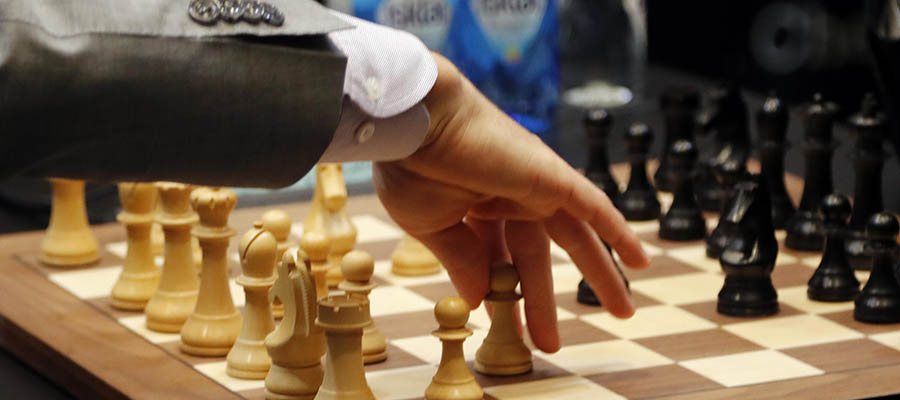The 2020 World Chess Championship was initially scheduled for the latter half of the year but ended up delayed until 2021 due to the COVID-19 pandemic, which postponed the 2020 Candidates Tournament. As such, Magnus Carlsen will retain his Chess World Championship for one more year, until a worthy challenger emerges from the Candidates Tournament.
While we wait for the 2021 World Chess Championship to commence, let’s take a look back at where it all started, the history of the competition and how the World Chess champions are crowned. That said, let’s jump right into action so you can start getting your bets and place them against our World Chess Championship odds.
2021 World Chess Championship – Format and History Analysis
World Chess Championship history
Even though the first generally recognized Chess World Championship did not take place until 1886, chess matches between players regarded as the best of their time extend back to 1560 when a Spanish Roman Catholic priest and author Ruy López de Segura was considered as the strongest chess player in the world.
The first chess match that somewhat resembled a proper world championship match happened in 1843 between Louis-Charles Mahé de La Bourdonnais of France and Alexander McDonnell of Ireland but it was not until three years later – in 1846 – when the first known proposal that a contest should be defined as world championship emerged.
Only 20 years later, in 1886, the first recognized world championship took place between Johannes Zukertort and Wilhelm Steinitz who won the match and became the first official chess world champion. At the time, new terms were set, requiring any challenger to raise a sizeable stake to face and defeat the reigning champion in order to be crowned the best in the world.
After the death of a four-time world champion Alexander Alekhine in 1946, FIDE (The International Chess Federation) took over the administration of the Chess World Championship and organized the first official tournament in 1948. Between 1993-2006, four world championship series were played split from FIDE (as Classical World Chess Championship), until the two titles were unified at the World Chess Championship 2006.
Additional changes were made to the world championship in 2014 when it was settled the matches will be played on a two-year cycle with the championship held in every even year. The change was made a year after Magnus Carlsen has won the title in 2013 when he beat Viswanathan Anand and has since successfully defended the title in 2014, 2016 and 2018.
Nowadays, the Chess World Championship also hosts separate events for women, junior players (under 20 years), senior players (60 years and above), as well as events with faster time limits (World Rapid & Blitz Chess Championship).
Chess World Championship qualification – The Candidates tournament
Due to the COVID-19 pandemic, the 2020 Chess World Championship has been postponed to 2021, marking the first time since 2013 the match will be held in an uneven year. The postponement was announced shortly after the 2020 Candidates Tournament was suspended, effectively meaning the reigning champion Carlsen does not have a challenger to play against.
The Candidates tournament is an eight-player chess double round-robin tournament which is held to decide who will challenge for the title. This year’s Candidates tournament was held in Yekaterinburg, Russia, from March 17- 25 , however, was cut short seven rounds in.
The tournament featured some of the biggest names in the world, including the 2018 World Championship runner-up Fabiano Caruana, Chess World Cup 2019 runner-up Ding Liren, FIDE Grand Swiss Tournament 2019 champion Wang Hao, FIDE Grand Prix 2019 finalists Alexander Grischuk and Ian Nepomniachtchi, as well as Anish Giri and Maxime Vachier-Lagrave as two players with the highest average rating and a wild card player Kirill Alekseenko.
Vachier-Lagrave was chosen to participate at the tournament as a replacement for the Chess World Cup 2019 champion Teimour Radjabov who decided to withdraw from the tournament, citing personal reasons. Despite being only a replacement, Vachier-Lagrave will enter the second part of the tournament sharing the lead with Nepomniachtchi, whereas Caruana, Giri, Hao and Grischuk all sit tied in third.
The World Championship Match format
The World Championship match consists of 14 games and features the reigning champion and the challenger player. The time control for each game is 120 minutes for the first 40 moves, followed by 60 minutes for the next 20 and 15 minutes for the rest of the game with increments of 30 seconds for each move starting with 61st.
The player who scores 7.5 points or more first wins the championship. In case of a tie after 14 games, the tie-breaker match is played.
The tie-breaker is a match of four games with a time control of 25 minutes + 10-second increments per move. If the score remains tied after four games, another match of two games is played with five-minute time control and a three seconds increment per move.
In a case of another tie, a two-game match is played with the same time control. This procedure can be repeated up to five times after which a sudden death game occurs.
Although tie-breakers are relatively rare at the Chess World Championship, both of the last two championships saw tiebreaker matches. In 2016, Carlsen defended his title after a 3-1 tiebreaker match with Sergey Karjakin and retained his title in 2018 after he won a tiebreaker match (3-0) against Fabiano Caruana.
Due to two back-to-back tiebreakers, FIDE decided to change the format from best-of-12 to best-of-14. This means the upcoming world championship match will mark the first in history with the new format and the first since 2006 to step away from the Bo12 series.






